Portfolio of Published/Completed Games
My games and games and experimental approaches to play are dedicated to illuminating connections between social justice, theatre, wellness, and education.
Published Games
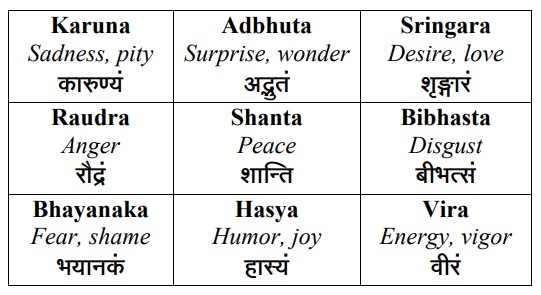
In R. Bowditch, Murray Cole, P. & Minnick, M. Inside the Performance Workshop: A Sourcebook for Rasaboxes and Other Exercises. New York: Routledge.
This book chapter illustrates how I adapted the theatre game of Rasaboxes for clinical settings and how it helps patients regulate emotions, disrupt cognitive blocks, and develop a healthier identity.
Rasaboxes is an actor-training game developed by Richard Schechner of NYU. Schechner drew his inspiration from the Natyasastra, the ancient Indian manual written in Sanskrit for dance/music/theatre, which describes nine primary emotions every performer must master (Rasa literally means “juice” or “flavor”). Schechner laid out nine boxes on a floor with tape or chalk as a life-sized gameboard, each labeled with a Sanskrit rasa name. Player jump into each box and dramatize each rasa immediately through body, breath, face, and voice. They are then challenged to jump into another box at any time and immediately transition.
In the article, I also unpack how such clinical applications face important limitations and ambiguous ethical territories. Guidelines are offered to Rasaboxes facilitators who wish to use the exercises for improving players’ well-being without slipping into unethical territory.
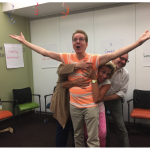
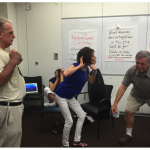
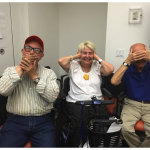
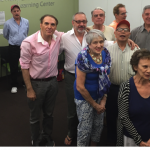
Being Alive: An Interpretive Case Study of Teaching Artistry at an LGBT Metropolitan Senior Center (2017)
My doctoral study included original games as arts-based to investigate intersectional identity and healing at an LGBT Senior Center. https://www.proquest.com/openview/321b9b160e256eaa5c5b66c0c1bb974e/1?pq-origsite=gscholar&cbl=18750. An excerpt of the game description is available here: Embodied Focus Group_Excerpt.
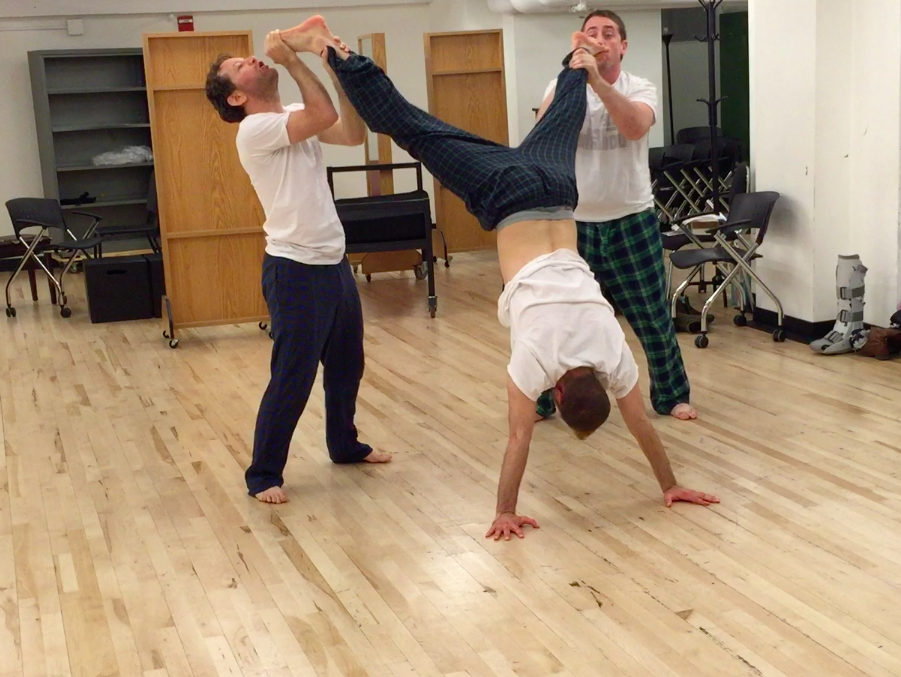
Physical Theatre Education: Beyond Knowledge Transfer (2016)
Teaching Artist Journal 14(4), 199–205. http://dx.doi.org/10.1080/15411796.2016.1259204
This article showcases how various physical theatre games are taught and applied. I also theorize how a teacher’s reverence for the human soul cultivates risk-forward embodiment as well as technical precision

Kindergarten Truck: Participatory Play in Public (2015)

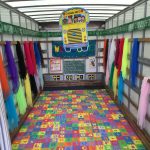
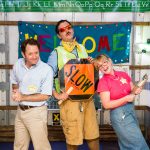
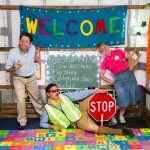
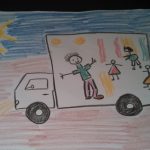
Research in Drama Education: Journal of Applied Theatre and Performance, 20(1), 100-109. http://dx.doi.org/10.1080/13569783.2014.975110
Kindergarten Truck was an immersive game playing with the boundaries of public/private expression and regression. Adapted from improvisational drama therapy techniques and conducted as a street theatre performance, this experience reached over 1,000 participants in under-resourced urban neighborhoods across the US from 2012-2015. I contend that the strategic use of aesthetic distance provided the containment for cathartic experiences among strangers across divisions of race and class.
I looked at how playing in civic playspaces guided by principles of aesthetic distance could liberate and reveal audiences’ vulnerable selves while cross-examining consumerism, democracy, and the power of applied drama praxis itself.
In 2017, I received the Performance Award from the North American Drama Therapy Association to honor the project’s positive social impact. I have presented the project at multiple international/national conferences.
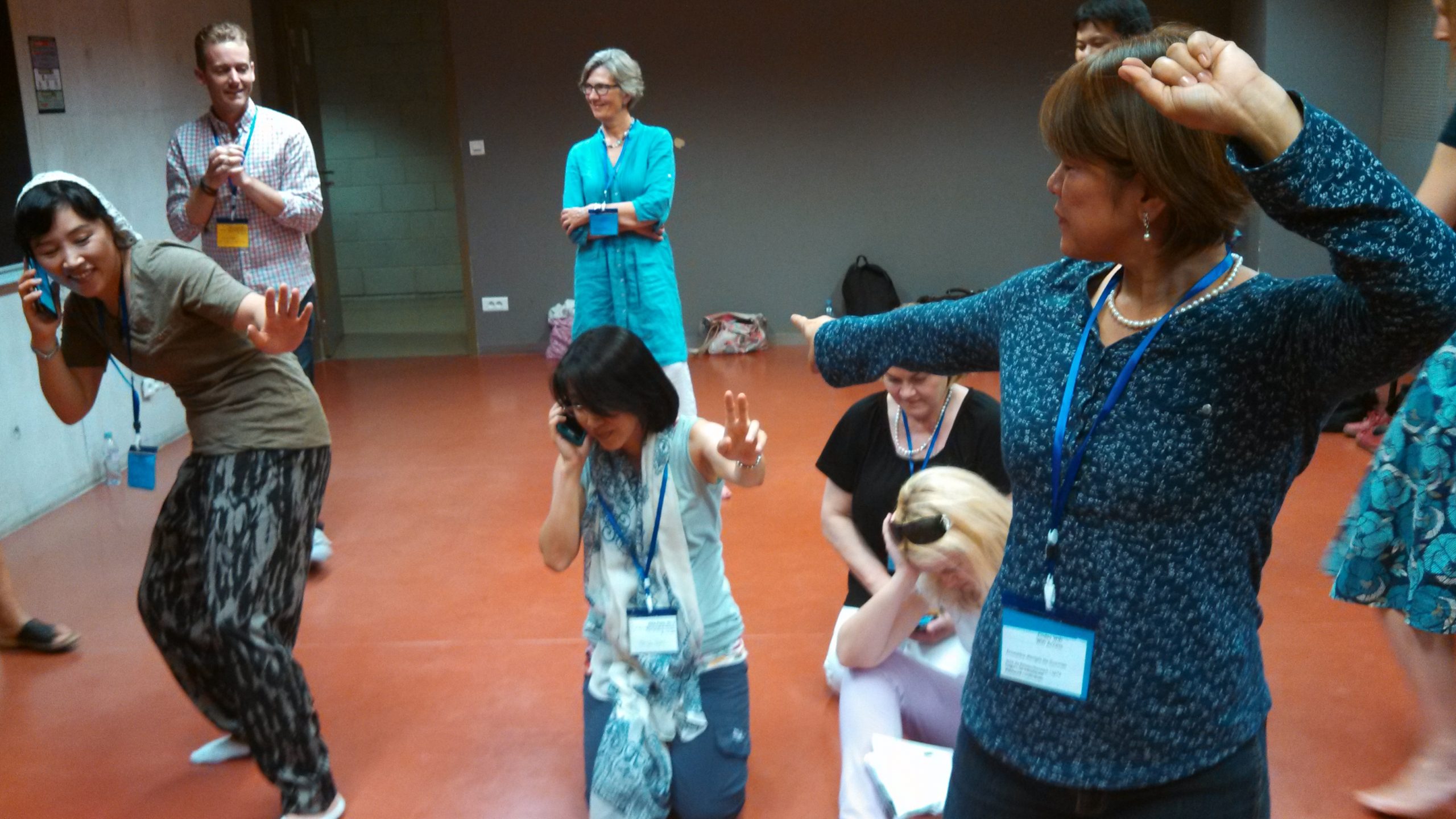
Between Drama Education and Drama Therapy: International Approaches to Successful Navigation (2015)
p-e-r-f-o-r-m-a-n-c-e, 2(1). http://p-e-r-f-o-r-m-a-n-c-e.org/?p=1223 with Butler, J. D. & Holmwood, C.
This article documented an adapted version of Forum Theatre (Game by Augusto Boal) devised by me and my colleagues for the International Drama/Theatre and Education Association held in Paris, France. Forum Theatre is a dialogic game to engage with contemporary issues of justice – in this case helping teachers at an international conference meaningfully intervene with problematic students without slipping into therapy. A version of this workshop was repeated at American Association for Theatre Education and the North American Drama Therapy Association.
Completed Games
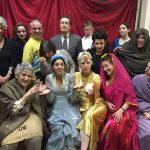

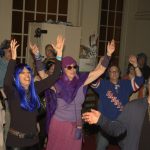
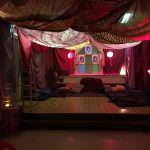
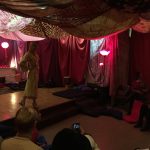
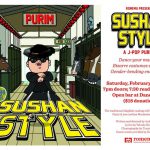
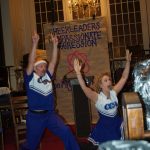
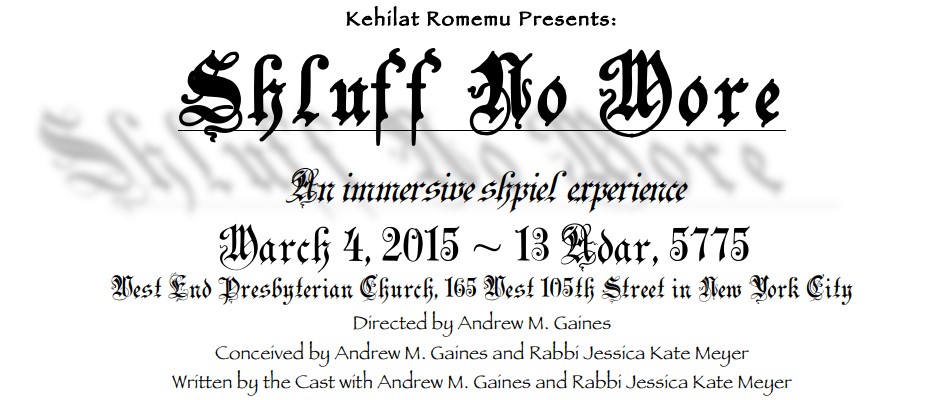
Shluff No More: An Immersive Shpiel Experience (2015)
Site-specific immersive community-engaged performance game exploring The Book of Esther.
Each year from 2010-2015, I devised and directed a new community-engaged game/performance to critically explore the Jewish holiday of Purim identity through irreverent “shpiels.”
We co-created a unique collaborative performance to critically explore ethnicity, identity, and the sacred text.
The performances catalyze civic engagement and meaning-making.
As one example, for Shluff No More, I orchestrated a 60-member crew to guide 400 audience members around nine locations of a three-story synagogue in under 2 hours. Each scene playfully disarmed congregants as they encountered sacred text from The Book of Esther.
Participants reported how the event deepened their affiliation and transformed their relationship with the themes of ethnic strife.
Organizing the game logistics required tremendous planning. With the help of my dear friend Scott Osman, here is a glimpse at how I laid out the team coordination:
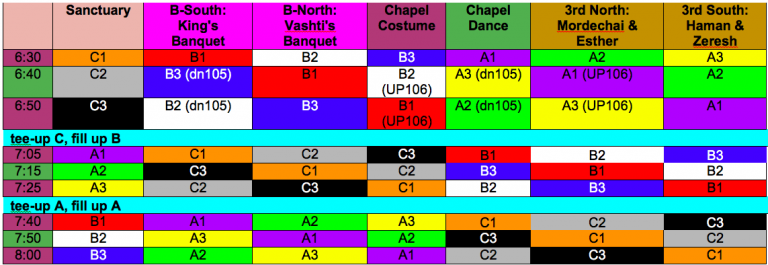

Jewish Topography: Exploring and Celebrating Our Diversity
Diversity and pluralism game to develop personal and community identity. Players encounter, delve, and connect with each other through a fast-paced series of engaging games, activities, and explorations.
Game was conducted at NYC’s Jewish Community Center event celebrating the holiday of Shavuot with an all-night learning event, Tikkun, meaning “heal.” Jews of all races, denominations, genders, ages, orientations, and levels of observance attended my session, inviting them to “delve, encounter, connect, and discover the breadth and depth of our communal and individual identities.”
I facilitated fascinating encounters and discussions about the visible and invisible lines that divide and connect us.
Jewish Topography was a play on Jewish Geography–a name given to the little social game some Jews play in search of a shared connection or network. For instance, when another Jew learns that I was born and raised in Phoenix, Arizona they might start asking if I know a local Rabbi or another Jew who lives there. Turns out, this game was played when I was dating my wife by her family and earned me a few more dates! In this workshop, rather than exploring who we know, we were traversing the diversity of who we are–the variety and contours that make up our cultural identities.
Players discover and celebrate the breadth and depth of our diversity and the many roles we play. Folks are guaranteed to be surprised at what you’ll learn about yourself, your loved ones, and strangers. Participants of all ages, backgrounds, observance levels, and orientations gathered to help represent our full Jewish topography. Presented at the Jewish Community Center of Manhattan and LimmudNY
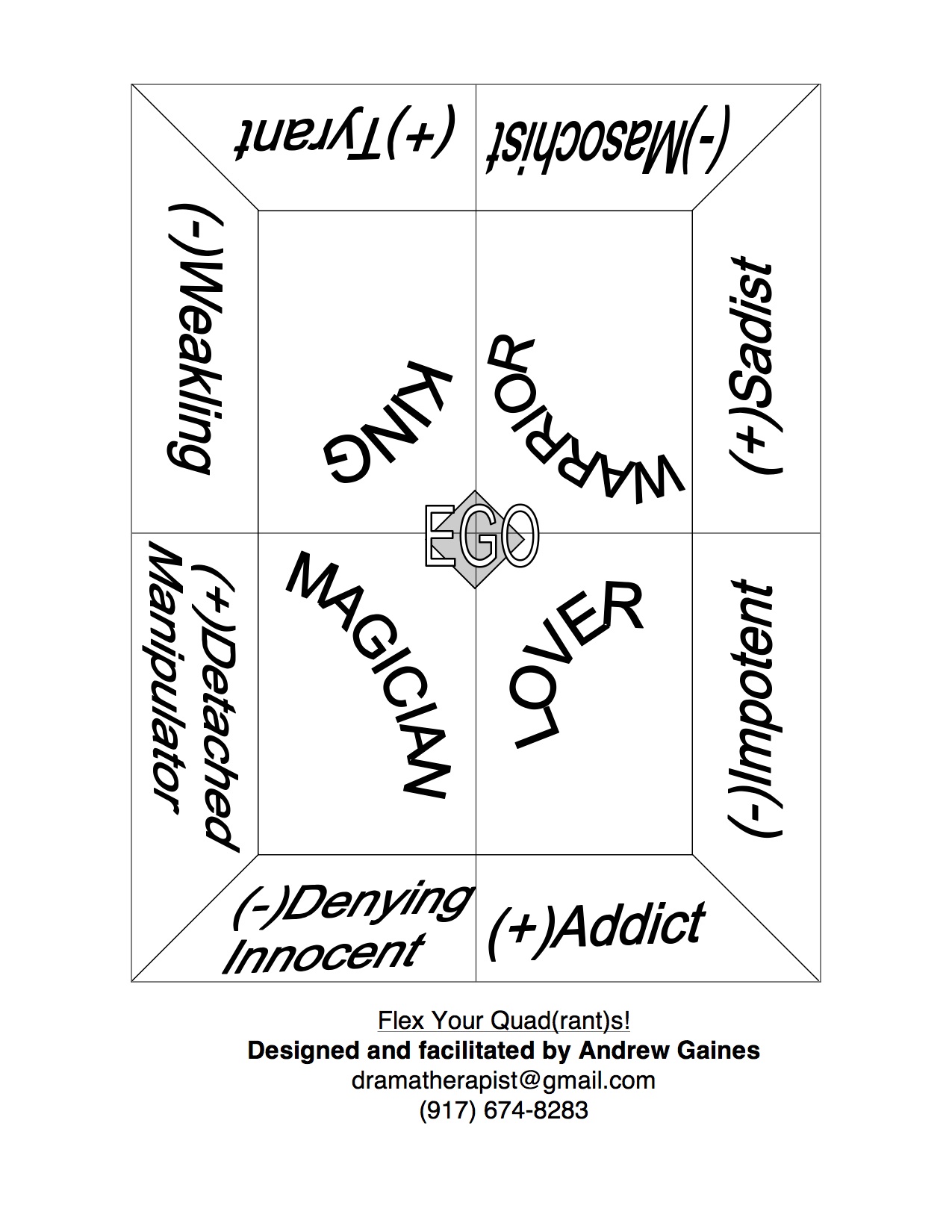
Flex Your Quad(rant)s
Played on a life-sized gameboard, Flex Your Quad(rant)s was an embodied exploration of gender and emotion in the construct of masculine archetypes. A new take on the Rasaboxes game, Flexing Quadrants challenged players to integrate both “shadow” and “gold” personas for each archetype. This game was inspired by the book King, Warrior, Magician, Lover: Rediscovering the Archetypes of the Mature Masculine by Robert Moore & Douglas Gillette (1991). Game presented to the ManKind Project. New York, NY.
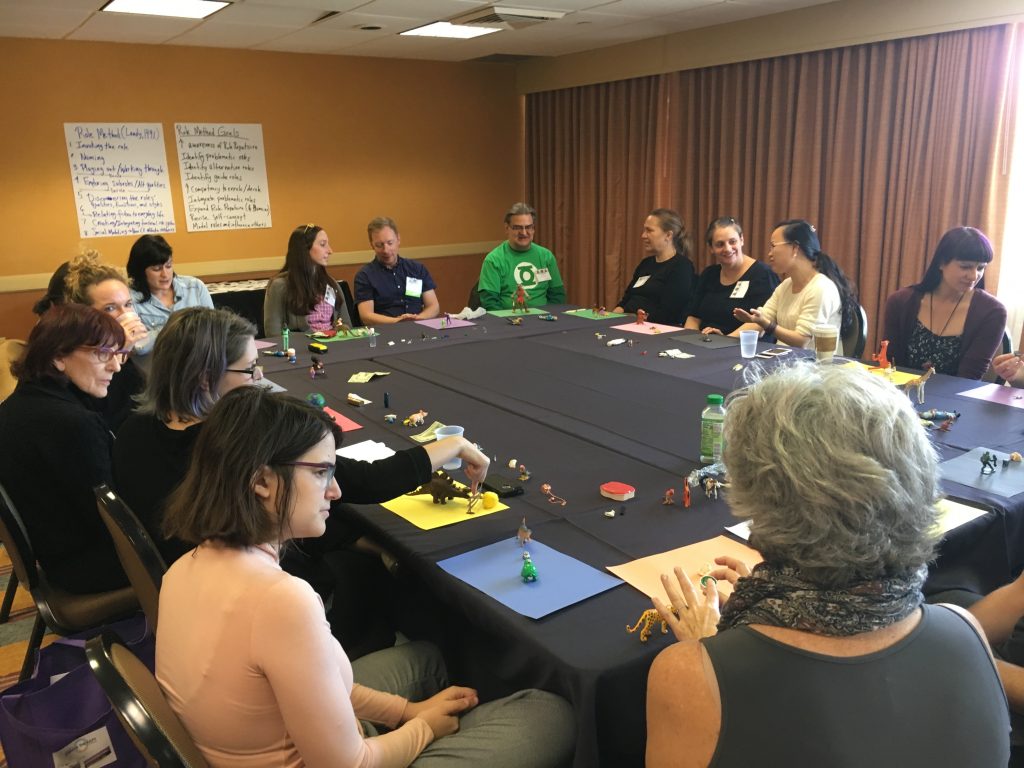
Tabletop Journey
Combining elements of Hero’s Journey (Campbell), Role Method (Landy) and World Technique (Lowenfeld), this original game was originally designed for drama therapy, but has been adapted for non-clinical applications.
Seated with small objects on a table, players are guided to spontaneously fashion a fictional story. Through aesthetic distance, the story often relates to our personal life journey.
Seated with small objects, Tabletop Journey affords greater control and containment, yet the stories it reveals can release profound spontaneity and connection among participants.
Presented to the North American Drama Therapy Association conference in Boston, MA.
Ethical Praxis Discourse: Theatre, Education, Therapy, and Activism
- When does our work become too emotional or too personal?
- What is the difference between therapy and therapeutic?
- How are at-risk populations’ needs addressed?
- How can we train facilitators and artists to manage these ethical dilemmas?
I chaired and led this panel with my colleagues: Ashley Forman, David Montgomery, and Juliana Saxton